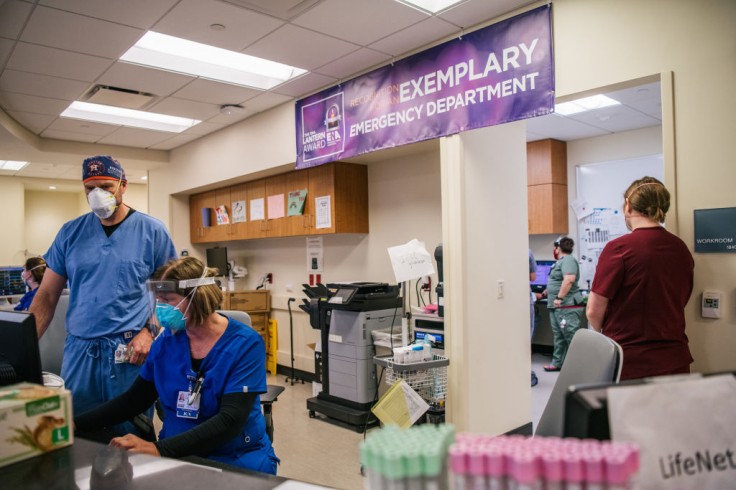
According to doctors, parents should not bring children exposed to COVID-19 in schools to the emergency room if they do not have any symptoms.
Fox News reported that parents and their kids have been crowding the ER in the past weeks at the SSM Health Cardinal Glennon Children's Hospital in Missouri. This has resulted in the delay of service for other non-COVID cases because of the long line of patients.
Although the doctors won't turn away people who come to the ER, Dr. Rachel Charney said that parents should bring their children to actual COVID-19 testing sites instead, especially if they need to meet the COVID-19 testing requirements of the school. Charney also advised parents to check with their doctors or the public health department for possible COVID-19 testing sites.
Dr. Brent Kaziny of the Emergency Management at Texas Children's Hospital also advised parents not to bring their children to the ER for COVID-19 testing as emergency rooms cannot attend to all patients. She told Houston Chronicle that their pediatric ER has been busier this fall season because of increased respiratory syncytial virus (RSV) cases.
When to Bring Children to the ER
According to Dr. Cory Showalter of the Riley Children's Health in Illinois, parents should watch out for symptoms like difficulty in breathing and dehydration. If the children exhibit these worrying signs, then they can go to the emergency room to receive COVID-19 medical care as soon as possible.
Children with medical conditions, coupled with upper respiratory issues and fever higher than 100.4 degrees, may also go to the ER. Parents may bring their kids to urgent care facilities for non-threatening symptoms like allergies, stuffy noses, vomiting, or body aches.
Know before you go.
— Riley Children's (@RileyChildrens) August 24, 2021
Please help us spread the word to help keep our facilities operating efficiently. pic.twitter.com/wG9JVcsMFc
The Riley Children's Health sees about 20 to 40 pediatric COVID-19 cases every day when school started in Texas. Since the pandemic's start in 2020, the state has had over 100,000 children under 17 years old who tested positive for the virus, which is about 12.5 percent of the total cases.
Ideally, the doctors said that people, whether adults or children, should go for a test at least three to five days after their exposure to reduce the chances of a false negative result. Most schools in the U.S. require children who have tested positive for COVID-19 to notify the school, the families of their classmates and school staff, and the local public health department.
Children's Immune System Still Better than Adults
Meanwhile, data from the Centers for Disease Control and Prevention (CDC) from March 2021 to August suggested that only two percent of children under 18 years old in the U.S. have been hospitalized for COVID-19. While there have been deaths among minors, these cases involved children with weaker immunities, underlying or chronic conditions.
The experts said that kids are "relatively spared" from the worst of COVID-19 because they have stronger immunities than adults. According to Dr. Betsy Herold of the Albert Einstein College of Medicine, children's immunity response seems to have been "revved up and ready to go" when the pandemic threats started.
The experts also noted no clear evidence that children are vulnerable to the Delta COVID-19 variant. However, cases among kids are rising because most adults have been vaccinated against the virus.